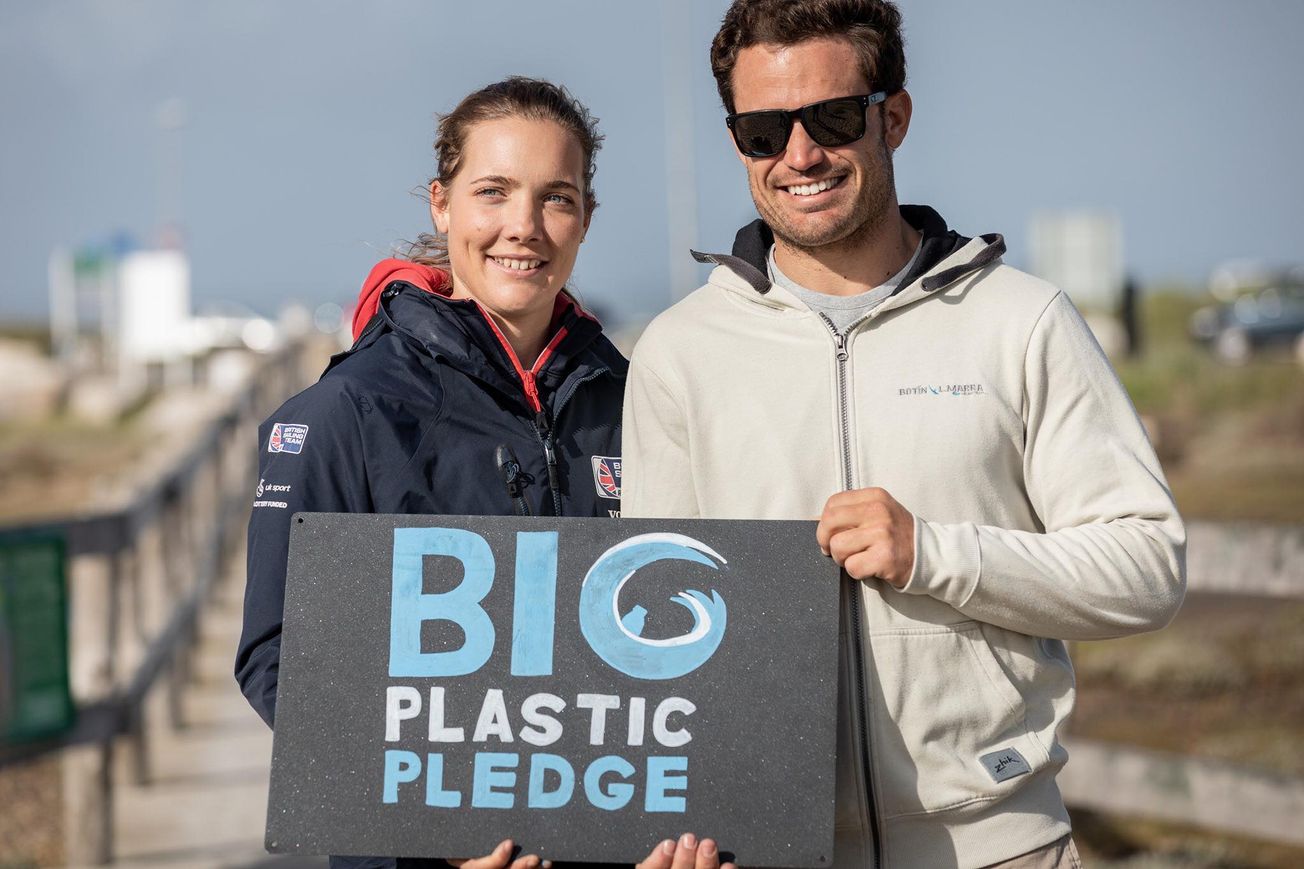By Bethany Marris, Deputy Digital Editor
Bristol alumni and sailing champion Hannah Mills has launched the Big Plastic Pledge, harnessing the reach of sport to inspire millions to reduce their plastic usage.
Olympic gold medalist and former Bristol University student Hannah Mills has launched the Big Plastic Pledge (BPP). The campaign aims to tackle the overwhelming crisis of global overindulgence in single-use plastics. In 2016, while sailing in the Rio Olympics, Hannah waded through densely polluted waters, and was struck by seeing the magnitude of the problem first hand. In a recent BBC interview, the athlete emphasised that winning Gold in Rio was one of the most ‘pivotal points’ in her career, ‘yet equally, it highlighted just how much damage had been done to the ocean.’
The BPP is backed by the International Olympic Committee, for which she is also a sustainability ambassador. Mills revealed that despite the organisation’s global reach, theres only a handful of sporting personalities promoting environmental action under an ambassador title amongst the Olympic community. Discussing how her journey with the IOC began, Hannah told Epigram, ‘I was talking to World Sailing and saw what they were doing, I saw what we could do together and we started thinking about how to take action. I got invited to an IOC conference back in November as this whole Big Plastic Pledge idea was developing. I talked about athletes roles and what we can do collectively.’
The campaign is pretty self explanatory; individuals and sportspersons signing up must pledge to reduce their plastic consumption in a minimum of three areas, including investing in a reusable water bottle, refusing plastic straws or declining single-use carrier bags. 50 per cent of plastic production becomes single-use plastics, and through harnessing the reach of sport, Mills and her team will promote the imminent importance of making sustainable swaps.
🖐 up if this was one of your pledges in the comments below! Have you made your pledges yet?
— Big Plastic Pledge (@big_pledge) September 17, 2019
Simply go to our website https://t.co/aXti4UWsMa and select 3 out of the 9 pledges that are available to choose from. This is a good one...
TAKE YOUR OWN WATER BOTTLE #bigplasticpledge pic.twitter.com/3MIVFNn5E1
Hannah is targeting an industry she knows inside out. Sporting events generate vast amounts of plastic pollution; from disposable pint beakers to post-race bottled water, single-use products are inescapable. Discussing progress that has already been made in the sporting realm, Hannah acknowledged that although Wimbledon sponsor Evian used re-cycled plastic bottles in this year’s tournament, ‘they’re essentially still promoting single-use plastic’, and with one million single-use bottles sold every minute, this isn't an issue to be half-heartedly addressed. Furthermore, Mills highlighted that football stadiums are the most ‘obvious area to target.' She continued, 'I know that the Premier League have started a few schemes aiming to reduce single use, but this isn’t something that has taken off across the whole premiership.’
Generating the kind of mass-support that BPP is aiming for amongst football fans certainly isn't unattainable, as this year's 'Head's Up' campaign has proved. In conjunction with mental health charity ‘Heads Together’, The Football Association launched ‘Heads Up’ to ‘show the world that mental fitness is equally as important as physical fitness’, garnering wide-spread support from football's vast audience. With 3.5 billion tuning into last year’s World Cup, and over half of the world’s population having watched the Rio 2016 Olympics; the unitary nature of world sport is difficult to argue with, and the potential that this gives projects like BPP is monumental.
Environmentally, another campaign fighting relentlessly for change is South-West founded Extinction Rebellion. XR spreads it’s message by shocking audiences through non-violent demonstrations such as fast-fashion ‘die-ins’ and disruptions to national rail services. Although fighting from the same perspective, BPP takes a less confrontational approach. ‘The whole concept was always about it being positive and solution focused, rather than the negatives and the scary side of it’. Mills also highlighted how imperative it is for the project to be accessible to children; ‘the kids are just amazing and they’re really leading the charge, my brain has been going a bit mad thinking about all the cool stuff we can do around the Olympics with school sports days being in June and July.’ ‘It’s about everyone from grassroots young people up to elite olympians.’
Over the coming months, Hannah hopes that other athletes on board will ‘quickly start to feel equally responsible for the campaign.’ She continued, ‘my sights are set really big, we’d like to put a number on what we want to achieve by the end of the Olympics next year, I think people always respond well to a goal and a challenge.’ For now, however, 'it’s about engaging all the olympic sports as much as we can. It’s about getting athletes to think, ‘well what could we do that will have an impact?’, it’s collaborative.’
Above all, it takes monumental determination and commitment to acheive Olympic status, and with a Gold-Standard athlete at the helm, the Big Plastic Pledge has all the right ingredients to inspire a wealth of change in an industry that desperately needs it.
Featured Image: Big Plastic Pledge/Facebook
What do you think of the Big Plastic Pledge? Let us know.








